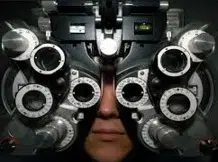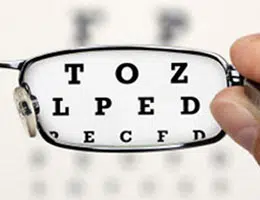 Optometry is the measurement of vision acuity with the intention of reversing eventual defects through lenses. In its broadest sense, the concept refers to the discipline that is responsible for taking care of visual health at a primary level .
Optometry is the measurement of vision acuity with the intention of reversing eventual defects through lenses. In its broadest sense, the concept refers to the discipline that is responsible for taking care of visual health at a primary level .
In this way, optometry encompasses various actions to diagnose, prevent, treat and correct vision damage or deficiencies. Its scope includes the design and control of lenses .
The optometry professional is known as an optometrist . This is a specialist in the primary care of the visual system .
The optometrist can also be called an optician , and it is important to note that he is not a doctor although he is part of the healthcare staff. Their tasks include the following: vision grading; performing vision therapy ; conducting low vision exercises for people suffering from visual dysfunctions.
It is interesting to mention that confusion often occurs between the notion of optometry and other related ones such as ophthalmology or optics . Ophthalmology , for example, is the specialty of pathology focused on eye diseases. The idea of optics , meanwhile, refers to both that linked to vision and the technique for manufacturing lenses and the part of physics that is dedicated to the study of the phenomena and laws of light. While the ophthalmologist or oculist is a doctor, the optometrist or optician is not.
Since the optometrist is not a doctor, he or she needs to work in a complementary manner with one, more specifically, with an ophthalmologist. They do this throughout surgical interventions and explorations. In the context of surgery, the optometrist has a fundamental role, since he must calculate the lens that will be implanted in the patient, something necessary for cataract or presbyopia operations, for example.
In other words, the optometrist carries out a series of tasks that revolve around collecting essential information for the ophthalmologist's work. It is the latter who will evaluate the state of the patient's ocular health and make the decision to apply a certain treatment or perform a surgical intervention, among other possibilities.
Through ocular refraction procedures and studies such as retinoscopy or schiascopy , optometry is responsible for analyzing the refractive state of the eyes. This makes it possible to detect anomalies such as astigmatism , hyperopia and myopia , among others.
 The control of intraocular pressure, the analysis of the optic nerve and the examination of the ocular structure in general are other activities carried out by optometry. The optometrist, on the other hand, is also dedicated to the fitting of lenses , glasses and spectacles.
The control of intraocular pressure, the analysis of the optic nerve and the examination of the ocular structure in general are other activities carried out by optometry. The optometrist, on the other hand, is also dedicated to the fitting of lenses , glasses and spectacles.
On the other hand, there is the concept of behavioral optometry , which focuses on the evaluation of the patient's lack of visual skills, and also examines the way in which the brain processes the information it receives through the eyes, in particularly in those cases in which an impediment or damage occurs in the children's learning processes.
The absence of these visual skills that are considered basic for the development of the person is part of a group of eye dysfunctions that have a negative impact on life. Its origin can be found in different problems, such as brain trauma, double vision, strabismus, laterality, growth disorders or amblyopia (also called lazy eye ).
We speak of children's optometry to encompass the care of people whose age range is between the first months and adolescence. It should be noted that the critical period for evaluating vision ends at two years of age.
